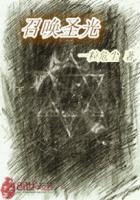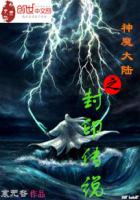Fallacies,then,that depend on Accident occur whenever anyattribute is claimed to belong in like manner to a thing and to itsaccident.For since the same thing has many accidents there is nonecessity that all the same attributes should belong to all of athing”s predicates and to their subject as well.Thus (e.g.),”IfCoriscus be different from "man",he is different from himself:for heis a man”:or ”If he be different from Socrates,and Socrates be aman,then”,they say,”he has admitted that Coriscus is different froma man,because it so happens (accidit) that the person from whom hesaid that he (Coriscus) is different is a man”.
Those that depend on whether an expression is used absolutely orin a certain respect and not strictly,occur whenever an expressionused in a particular sense is taken as though it were used absolutely,e.g.in the argument ”If what is not is the object of an opinion,thenwhat is not is”:for it is not the same thing ”to be x” and ”to be”
absolutely.Or again,”What is,is not,if it is not a particular kindof being,e.g.if it is not a man.” For it is not the same thing”not to be x” and ”not to be” at all:it looks as if it were,because of the closeness of the expression,i.e.because ”to be x”
is but little different from ”to be”,and ”not to be x” from ”not tobe”.Likewise also with any argument that turns upon the point whetheran expression is used in a certain respect or used absolutely.Thuse.g.”Suppose an Indian to be black all over,but white in respectof his teeth; then he is both white and not white.” Or if bothcharacters belong in a particular respect,then,they say,”contraryattributes belong at the same time”.This kind of thing is in somecases easily seen by any one,e.g.suppose a man were to secure thestatement that the Ethiopian is black,and were then to ask whether heis white in respect of his teeth; and then,if he be white in thatrespect,were to suppose at the conclusion of his questions thattherefore he had proved dialectically that he was both white and notwhite.But in some cases it often passes undetected,viz.in all caseswhere,whenever a statement is made of something in a certain respect,it would be generally thought that the absolute statement follows aswell; and also in all cases where it is not easy to see which of theattributes ought to be rendered strictly.A situation of this kindarises,where both the opposite attributes belong alike:for thenthere is general support for the view that one must agree absolutelyto the assertion of both,or of neither:e.g.if a thing is half whiteand half black,is it white or black?
Other fallacies occur because the terms ”proof” or ”refutation” havenot been defined,and because something is left out in theirdefinition.For to refute is to contradict one and the sameattribute—not merely the name,but the reality—and a name that isnot merely synonymous but the same name—and to confute it from thepropositions granted,necessarily,without including in thereckoning the original point to be proved,in the same respect andrelation and manner and time in which it was asserted.A ”falseassertion” about anything has to be defined in the same way.Somepeople,however,omit some one of the said conditions and give amerely apparent refutation,showing (e.g.) that the same thing is bothdouble and not double:for two is double of one,but not double ofthree.Or,it may be,they show that it is both double and notdouble of the same thing,but not that it is so in the same respect:
for it is double in length but not double in breadth.Or,it may be,they show it to be both double and not double of the same thing and inthe same respect and manner,but not that it is so at the same time:
and therefore their refutation is merely apparent.One might,withsome violence,bring this fallacy into the group of fallaciesdependent on language as well.
Those that depend on the assumption of the original point to beproved,occur in the same way,and in as many ways,as it ispossible to beg the original point; they appear to refute becausemen lack the power to keep their eyes at once upon what is the sameand what is different.
The refutation which depends upon the consequent arises becausepeople suppose that the relation of consequence is convertible.Forwhenever,suppose A is,B necessarily is,they then suppose alsothat if B is,A necessarily is.This is also the source of thedeceptions that attend opinions based on sense—perception.Forpeople often suppose bile to be honey because honey is attended by ayellow colour:also,since after rain the ground is wet inconsequence,we suppose that if the ground is wet,it has beenraining; whereas that does not necessarily follow.In rhetoricproofs from signs are based on consequences.For when rhetoricianswish to show that a man is an *****erer,they take hold of someconsequence of an *****erous life,viz.that the man is smartlydressed,or that he is observed to wander about at night.There are,however,many people of whom these things are true,while the chargein question is untrue.It happens like this also in real reasoning;e.g.Melissus” argument,that the universe is eternal,assumes thatthe universe has not come to be (for from what is not nothing couldpossibly come to be) and that what has come to be has done so from afirst beginning.If,therefore,the universe has not come to be,ithas no first beginning,and is therefore eternal.But this does notnecessarily follow:for even if what has come to be always has a firstbeginning,it does not also follow that what has a first beginning hascome to be; any more than it follows that if a man in a fever behot,a man who is hot must be in a fever.
The refutation which depends upon treating as cause what is not acause,occurs whenever what is not a cause is inserted in theargument,as though the refutation depended upon it.This kind ofthing happens in arguments that reason ad impossible:for in thesewe are bound to demolish one of the premisses.If,then,the falsecause be reckoned in among the questions that are necessary toestablish the resulting impossibility,it will often be thought thatthe refutation depends upon it,e.g.in the proof that the ”soul”















